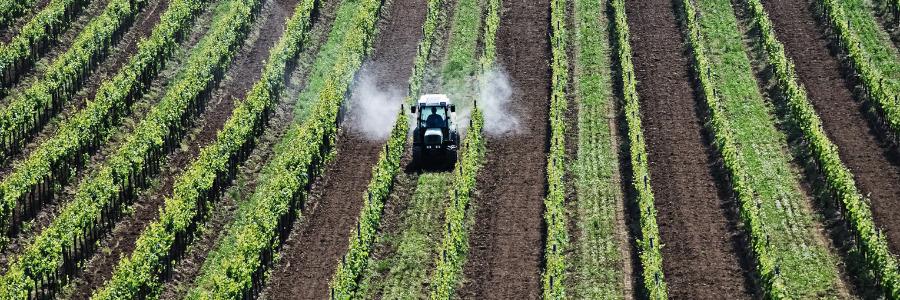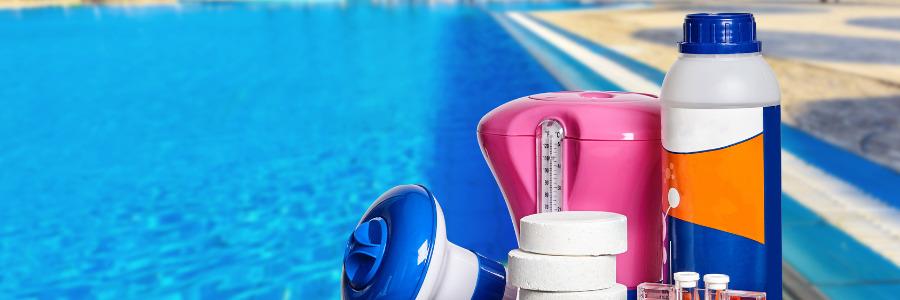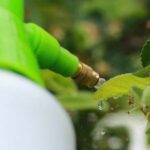What Is A Pesticide?
By Gorby Sandhu, M. PHARM., SENIOR REGULATORY AFFAIRS SPECIALIST, email
If you’re asking yourself, ‘What is a pesticide?’, you’re not alone.
Pesticides come up in conversations, in news articles and other sources of media. However, many people don’t know what pesticides products are and what effects they have.
Today, we want to help you understand pesticides, how they are classified in Canada and what Dell Tech can do to help.
What is a pesticide?
Pesticide law defines a pest control product as:
(a) a product, an organism, a substance or a device, including which derived through biotechnology, consisting of active ingredient and formulants, that is used directly or indirectly, to control, destroy, attract or repel a pest, or to mitigate or prevent the injurious, noxious or troublesome effects of a pest;
(b) an active ingredient that is used to manufacture anything prescribed in above paragraph;
(c) a compound or substance that is not an ingredient of a pest control product described in paragraph (a) but is added to or used with such a product to enhance or modify its physical or chemical characteristics or to modify an effect on host organisms in connection with which the product is intended to be used;
(d) a treated article; and
(e) treated seed
Pests include algae, bacteria, viruses, insects, flies, fungus, weeds, insects, mites, slugs, snails, rodents and other organisms that may threaten plants, plant roots, gardens, swimming pools, canals, your home or many other public or industrial settings.
A pesticide product can use a wide array of active ingredients to control, attract, repel or kill pests of a specific variety that may be considered a threat in a particular environment.
Many people mistake pesticides only to include insecticides as these are one of the more common pesticides that are purchased in stores. However, pesticides cover a wide variety of pests and even go as far as to include invasive plant species. There are, of course, a wide variety of human health and environmental effects that come with the use of pesticides, which is why PMRA registration applications are so vital!
Pesticides: How are they Regulated in Canada?
Most people are familiar with the US Environmental protection agency. This government body is responsible for pesticide regulation in the United States. In Canada however, pesticides are regulated by Health Canada’s Pest Management Regulatory Agency (PMRA) under Pest Control Products Act.
Primary objective of Pest Control Products Act (PCPA) is to prevent unacceptable risks posed to human health as well as the environment from the use of pest control products. PMRA prioritizes protection for children and pregnant women, accounting for pesticide exposure from food and water sources, ensuring only pesticides that make a useful contribution to pest management are registered, and registering lower-risk products more quickly.
Under authority of the Pest Control Products Act, PMRA also enforces strict post-registration control of pesticides including 15-year re-evaluation cycle, inspections of Pesticides’ manufacturers and distributors to ensure compliance and encourages public awareness through publication of registration and re-evaluation decisions. Many countries are not as strict with pesticide law as Canada.
Pesticide Use – Who uses them?
Pesticides can and are used by a wide variety of people spanning from homeowners to professional business owners. While different pesticides have uses that are specific to different locations, they all have the same common goal: to eliminate the threat of pests.
Of course, pests can be a much bigger problem in different locations. For example, pests effecting a restaurant is an issue that needs to be dealt with quickly and effectively. As well, invasive species threatening a crop needs to be dealt with in a timely manner or else it may very well kill the entire crop!
You may have used a pesticide more recently in the form of a UV device. In Canada, ultraviolet devices must undergo strict testing and evaluation by Health Canada in order to prove their efficacy against disease producing microorganisms.
Continue reading below for more information on the types of pesticides in Canada.
What are the Categories of Pesticides?
Pesticides have a variety of forms and include many products, devices, substances or even organisms. Each category of pesticide has a very specific use that can repel or eliminate specific species. There is a multitude of pesticide categories, including:
Herbicides
Herbicides are pesticides that are used to control weeds that can threaten a garden or crop. These are vital to those needing to facilitate harvest to make a living, some professions such as farming or greenhouse owners as to when you have weeds that are out of control, and the crops cannot flourish. When you have weeds under control, crops can flourish by growing faster and healthier.
Pesticide products and herbicides must be labelled correctly to ensure the safety of agricultural workers. This includes making clear any requirements for using personal protective equipment to avoid negative impacts of pesticide exposures.
Insecticides
When most people use the term pesticide, they are actually referring to insecticides. Insecticides are the most common type of pesticide. They are substances intended for preventing insects from destroying crops and other plants, including those you may have in your house or garden. You may even have used an insecticide in your home to control pests. However, these are not just for residential use; many industries need insecticides to keep insects under control. This is especially true in industries where insects are a direct threat to their products such as the farming or food industries.
Fungicides
Diseases in a crop can be catastrophic. Fungicides are a type of pesticide that specifically protects a crop from a variety of fungi that can spread destroy an entire crop. Fungicides are often used as a preventative measure to ensure that the crop can thrive without the risk of fungi taking over.
Insect & Rodent Control Devices
Insect and rodent control devices are common items that many people have in their homes or business at any given time. These devices include mosquito zappers and mouse traps. Often, these devices work by first attracting mice and other rodents before entrapping or eliminating them.
Algaecides
Algaecides are substances intended to repel organisms and remove the buildup of algae in swimming pools. Many have seen the effects of algae – it makes a pool go from crystal to clear to a disgusting mixture of green and cloudy. This is where algaecide comes into play: by using it, it effectively removes the algae and can ensure that a pool is kept clear and clean. There are a variety of common pool algae that can affect a pool with specific algaecides for each one.
Sanitizers
Sanitizers are the substances used to kill bacteria on surfaces. A key distinction between the Health Canada definition of Sanitizer and Disinfectant; a Sanitizer achieves a 3 log (99.9%) reduction of organisms while a Disinfectant achieves a 6 log (99.9999%) reduction of organisms. While the hard surface disinfectants are regulated by NNHPD, sanitizers for non-food contact and soft surfaces, greenhouse disinfectants and swimming pool and spa disinfectants are regulated by PMRA.
Slimicides
Slimicides are the broad-spectrum antimicrobial pesticides used to kill slime-producing microorganisms such as algae, bacteria, fungi, and slime molds. One primary application domain is in the papermaking industry, where it reduces the occurrence of paper holes and spots,as well as protecting the machinery from odor, clogs, corrosion, and breakdown. Additional significant application areas for slimicides include industrial water recirculation systems such as cooling towers, fuel storage tanks and wells, and in conjunction with fluids used for oil extraction.
How Dell Tech can help with Pesticides
Whether your product is a traditional pesticide, treated article, preservative, adjuvant or considered a Non-conventional or reduced risk; Dell Tech can help navigate the next steps with PMRA. Start with our first phase which is a regulatory evaluation for the predetermination of registration process which consists of identification of submission category and data requirements, calculation of application fees and timeline.








This blog from Dell Tech provides a concise and informative explanation of what pesticides are and their significance. It simplifies a complex topic, making it accessible to a wide range of readers